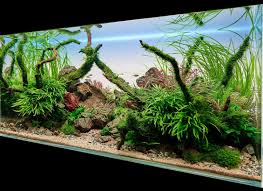Habitat
portance of Setting Up an Aquarium for Tropical Fish
Setting up an aquarium for tropical fish is far more than simply placing fish into a tank of water. It’s about creating a balanced, stable, and suitable environment that mimics their natural habitat. When done correctly, your tropical fish will thrive, display vibrant colours, and live healthy, stress-free lives. Poor setup, on the other hand, can lead to illness, aggression, and even premature death.
Understanding the Needs of Tropical Fish
Tropical fish come from a wide variety of habitats across the globe, including rivers, lakes, and rainforests. Each species has its own requirements in terms of water temperature, pH levels, tank mates, space, and hiding spots. Therefore, setting up an aquarium isn’t a one-size-fits-all process – it must be tailored to the specific species you intend to keep.
Choosing the Right Aquarium Size
One of the most important decisions you’ll make is the size of the aquarium. The tank’s dimensions directly impact water quality, swimming space, and the number of fish it can safely accommodate.
Why Size Matters
Larger tanks are generally easier to maintain because they provide more water volume, which helps dilute waste and maintain more stable water conditions. Smaller tanks may be cheaper and easier to fit into your home, but they can be much more difficult to manage and often restrict the types of fish you can keep.
Examples of Suitable Tank Sizes by Species
- Betta Fish: Minimum tank size of 20 litres (5 gallons) – despite common myths, they should not be kept in tiny bowls.
- Neon Tetras: Minimum of 40 litres (10 gallons) for a small shoal (6-8 fish) – they are schooling fish and need space to swim in groups.
- Guppies: 40–60 litres (10–15 gallons) for a small group – they breed quickly, so extra space is beneficial.
- Angelfish: Minimum of 110 litres (30 gallons) – they grow large and prefer taller tanks due to their body shape.
- Discus: 180 litres (50 gallons) and above – sensitive to water quality and do best in species-only tanks.
Always research the adult size and behaviour of any species you’re considering. Overcrowding or under-sizing a tank can cause stress, aggression, and poor water quality.
Essential Equipment for a Proper Setup
Once you’ve chosen the right tank size, you’ll need to equip it with the necessary gear to maintain a healthy environment:
- Heater: Tropical fish require consistent warm temperatures, typically between 24–28°C depending on species.
- Filter: Removes waste, toxins, and debris while promoting water circulation.
- Lighting: Essential for fish and plants. Some species need a day/night cycle to maintain natural behaviour.
- Substrate: Gravel or sand based on your chosen species and plants.
- Decor & Hiding Spots: Plants, rocks, and ornaments provide shelter and reduce stress.
- Water Test Kit: To monitor ammonia, nitrite, nitrate, pH, and temperature.
The Nitrogen Cycle: Don’t Skip It
Before adding any fish, it’s crucial to cycle your aquarium. This means establishing beneficial bacteria that break down harmful ammonia and nitrite into less harmful nitrate. The nitrogen cycle can take 4–6 weeks and is the foundation of a stable tank.
Introducing fish before cycling is complete can cause dangerous spikes in toxins and often results in “new tank syndrome,” which can be fatal.
Matching Fish to Their Environment
Setting up an aquarium also involves choosing fish that are compatible with one another and suited to the tank’s setup. Avoid mixing aggressive with passive species, and be mindful of territorial or bottom-dwelling fish that may need specific layouts.
Final Thoughts
A properly set up aquarium creates a safe, healthy, and enriching environment for your tropical fish. Taking the time to plan, research, and invest in the correct tank size and equipment will pay off in the long term, leading to fewer issues and happier fish. At The Fish Tank UK, we’re here to guide you through every step of the journey – from setup to stocking and long-term care.
Start right, and your underwater world will flourish for years to come.


